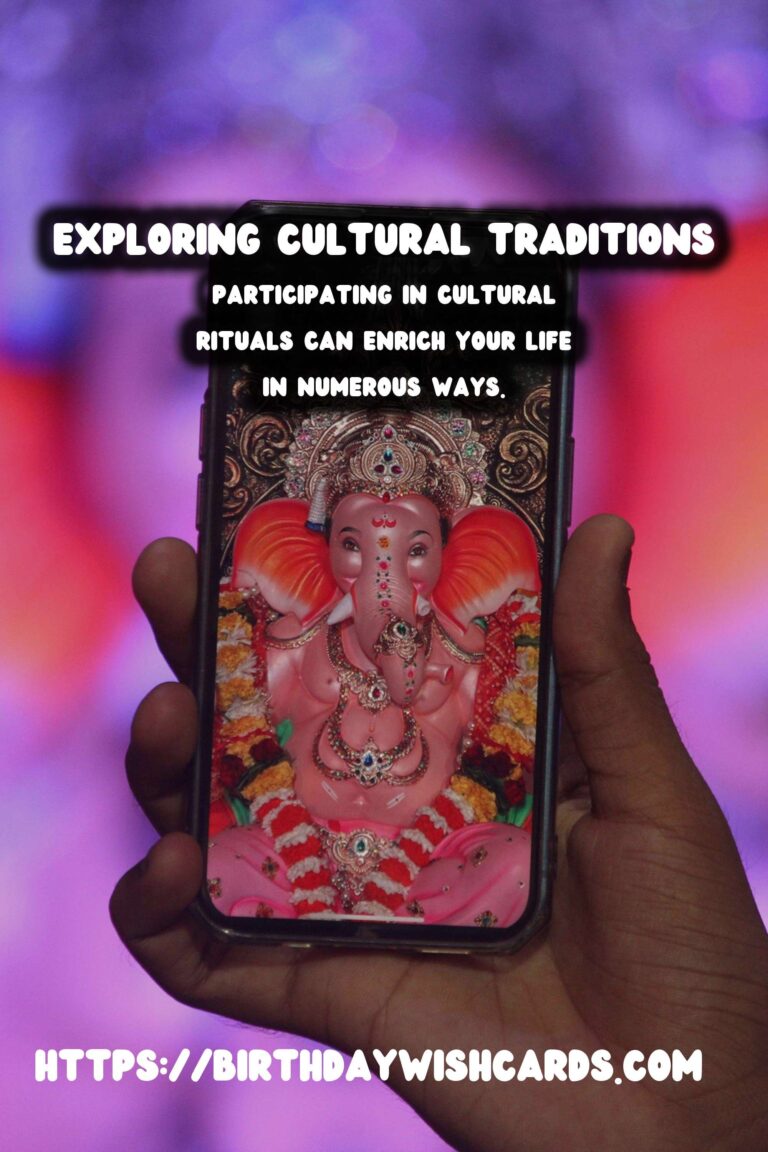20 Surprising Celebration Etiquette Around the World Ideas for Global Celebrations
20 Surprising Celebration Etiquette Around the World
Celebrating with friends and family is a universal language, but did you know that different cultures have unique ways to commemorate significant occasions? From weddings to birthdays and everything in between, celebration etiquette varies widely. In this article, we will explore 20 surprising celebration etiquette ideas from around the globe that can enrich your global celebrations.
1. Spain: The Midnight Feast on New Year’s Eve
In Spain, it is customary to eat twelve grapes at midnight on New Year’s Eve. Each grape represents good luck for each month of the upcoming year. The tradition is not just about eating but also involves the gathering of family and friends for a festive spirit.
2. Japan: Quiet Reflection During Celebrations
In Japanese culture, celebrations often include periods of silence or quiet reflection. This is especially true during weddings and festivals where the practice of ‘Shinto’ honors the spirits. Understanding this etiquette can bring a deeper appreciation for Japanese celebrations.
3. India: The Colorful Festival of Holi
Holi is celebrated with vibrant colors and is a time for forgiveness and renewal. However, it’s also about respecting personal space. You should ask before applying color to someone else, as not everyone may want to participate in the playful ritual.
4. Brazil: Samba and the Energy of Carnaval
Brazilian Carnaval is famous for its lively samba dance and parades. However, understanding the significance of the samba can elevate the experience. Participating respectfully in the dancing and appreciating the cultural history behind it is key.
5. France: The Importance of the Toast
In France, it is customary to make a toast during celebrations, especially during weddings. Each toast should be met with eye contact and a smile. Remembering to say “Santé!” or “Cheers!” adds to the conviviality of the occasion.
6. China: The Significance of Red Envelopes
During Chinese New Year and weddings, giving red envelopes filled with money symbolizes good luck. The amount is often an even number, as odd numbers are reserved for funerals. It’s important to accept the envelope graciously without opening it in front of the giver.
7. Mexico: Day of the Dead Celebrations
The Day of the Dead, or Dia de los Muertos, is a lively celebration honoring deceased loved ones with colorful altars and offerings. Respecting the memory while participating in activities is essential, highlighting the importance of remembering those who have passed.
8. Italy: La Tavola: The Importance of the Table Setting
In Italy, dining is more than just a meal; it’s a celebration. Respect for the table setting is crucial. Each item has its place and meaning, and understanding this can enhance your experience in Italian celebrations.
9. Finland: The Emphasis on Honor in Celebrating Graduates
In Finland, graduation ceremonies are prestigious events where graduates wear distinctive hats. Clapping is typically done after a speech, not during. Showing respect for the custom can show appreciation for Finnish culture.
10. Greece: The Role of the Dance
In Greek celebrations, particularly during weddings, traditional dances are an essential part of the festivities. Participating in the circle dance signifies unity and joy. Knowing the basic steps can create meaningful connections during celebrations.
11. Thailand: Water Festivals and Symbolic Rituals
During Songkran, the Thai New Year, water is used symbolically to wash away sins and bad luck. While water fights are fun, understanding the ritual’s deeper significance is vital to respecting the culture.
12. South Korea: Bowing in Celebration
In South Korea, bowing is a sign of respect that is particularly important during significant celebrations like weddings and holidays. Knowing when to bow and how low to go can greatly influence how you are perceived in social situations.
13. Ireland: The Tradition of the Blessing
In Ireland, blessings are an integral part of celebrations. It’s common to invoke blessings for good health and fortune during toasts. Making a heartfelt toast can be an essential connection to Irish tradition.
14. Sweden: Midsummer’s Celebrations
During Sweden’s Midsummer celebration, it’s customary to pick flowers and fashion floral crowns. Participating in this tradition shows respect for the natural beauty and culture of Sweden.
15. Russia: Gift-Giving Etiquette
In Russia, when attending a celebration, it’s polite to bring a gift. Flowers are popular, but remember that giving an even number of flowers is traditionally reserved for funerals. Understanding this custom shows your respect for Russian traditions.
16. Ethiopia: The Tradition of Injera
During celebrations in Ethiopia, food is shared communally on a large piece of injera (a sourdough flatbread). It’s important to eat with your right hand, as the left hand is considered unclean in Ethiopian culture.
17. Israel: The Significance of the Break-the-Glass Tradition
At Jewish weddings, breaking the glass is a ritual that symbolizes the fragility of relationships. Participants should be prepared for an emotional moment, which adds depth to the celebration.
18. Scotland: Highland Games and Local Pride
The Scottish Highland Games celebrate athletic competition with a sense of local pride. Understanding the respect participants have for their heritage can enhance your experience while attending or participating.
19. Norway: The National Day Celebrations
On Norway’s National Day, children lead the parades, showcasing the celebration. Remembering to respect the children and their pride in their heritage is vital for visitors during this national event.
20. Indonesia: Traditional Dress and Cultural Symbols
During Indonesian celebrations, wearing traditional attire is essential that symbolizes the rich culture of the region. Participating respectfully in traditional dress allows you to honor the celebration’s significance.
In conclusion, understanding and respecting global celebration etiquette can enrich the experience for everyone involved. By embracing these cultural practices, you not only honor traditions but also foster global connections that celebrate our shared humanity.
Celebrating with friends and family is a universal language, but did you know that different cultures have unique ways to commemorate significant occasions?
In Spain, it is customary to eat twelve grapes at midnight on New Year’s Eve.
Understanding this etiquette can bring a deeper appreciation for Japanese celebrations.
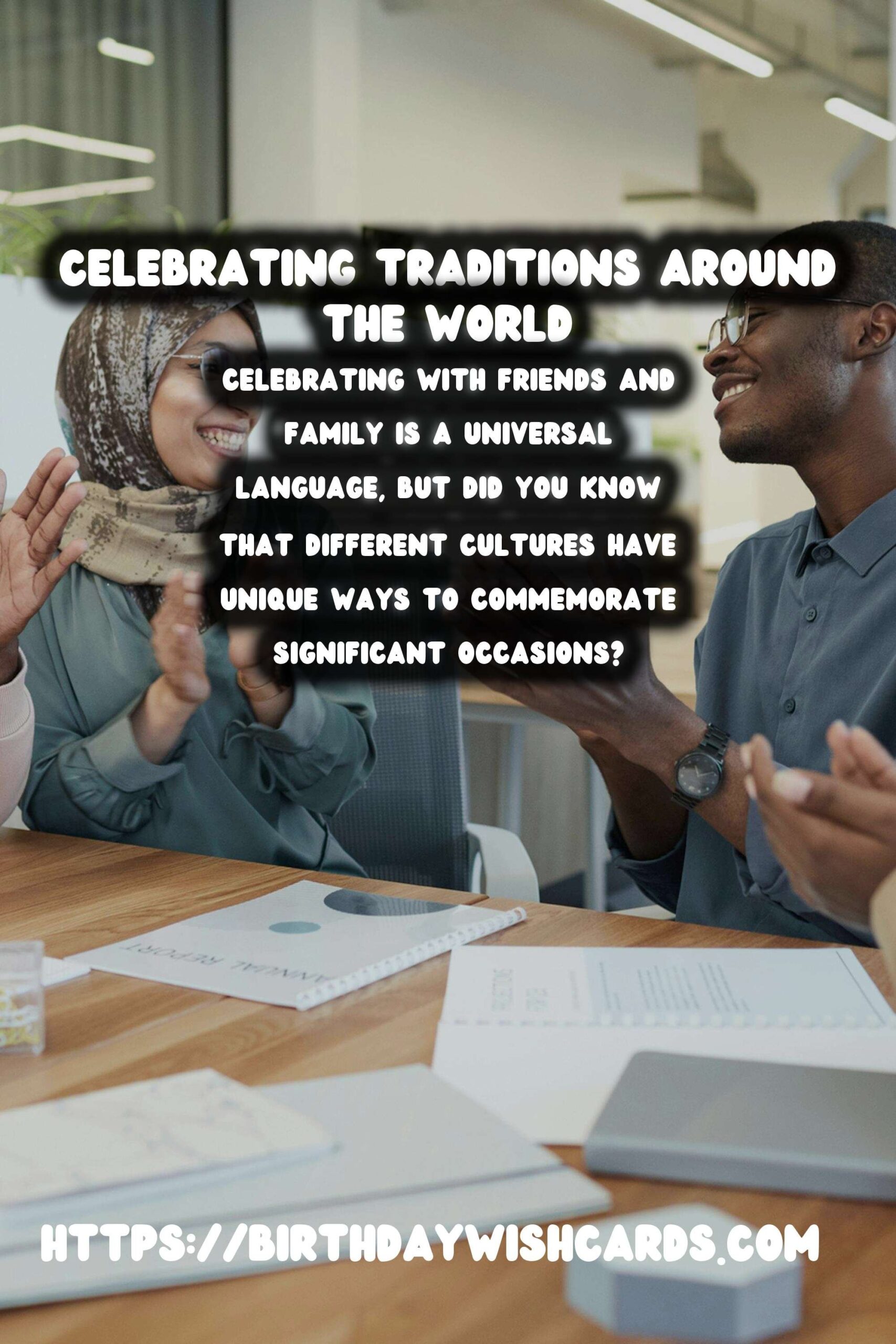


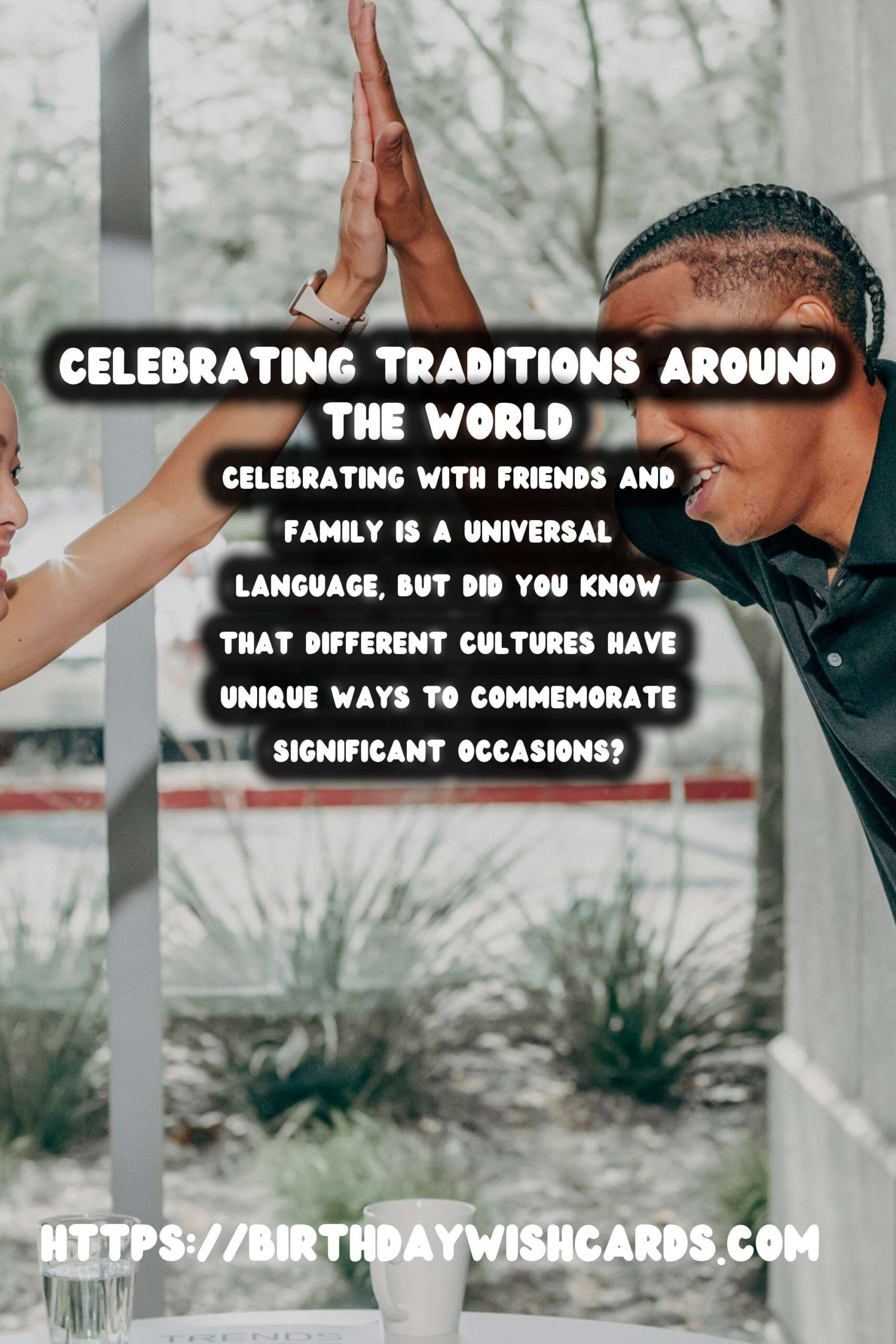

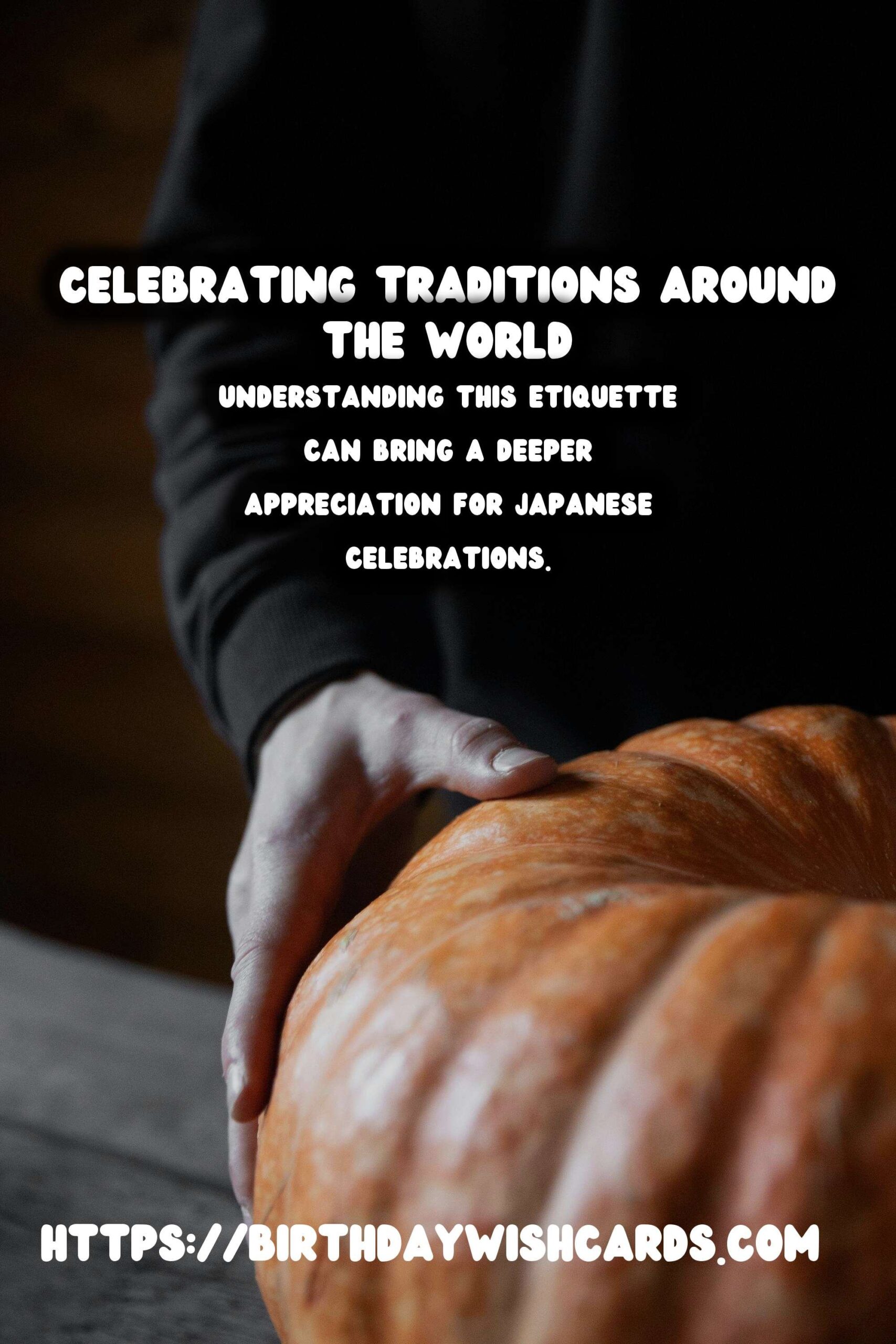
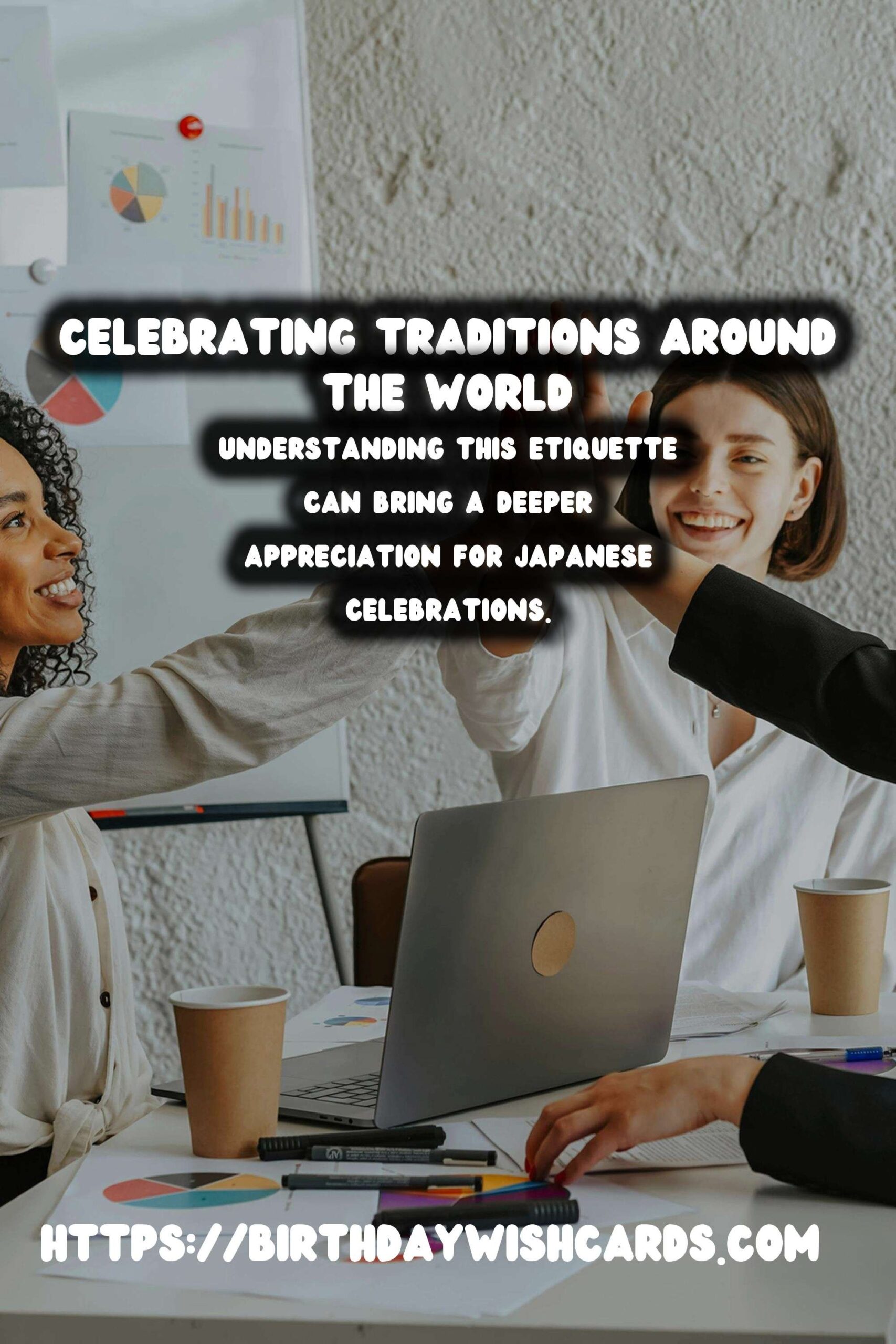

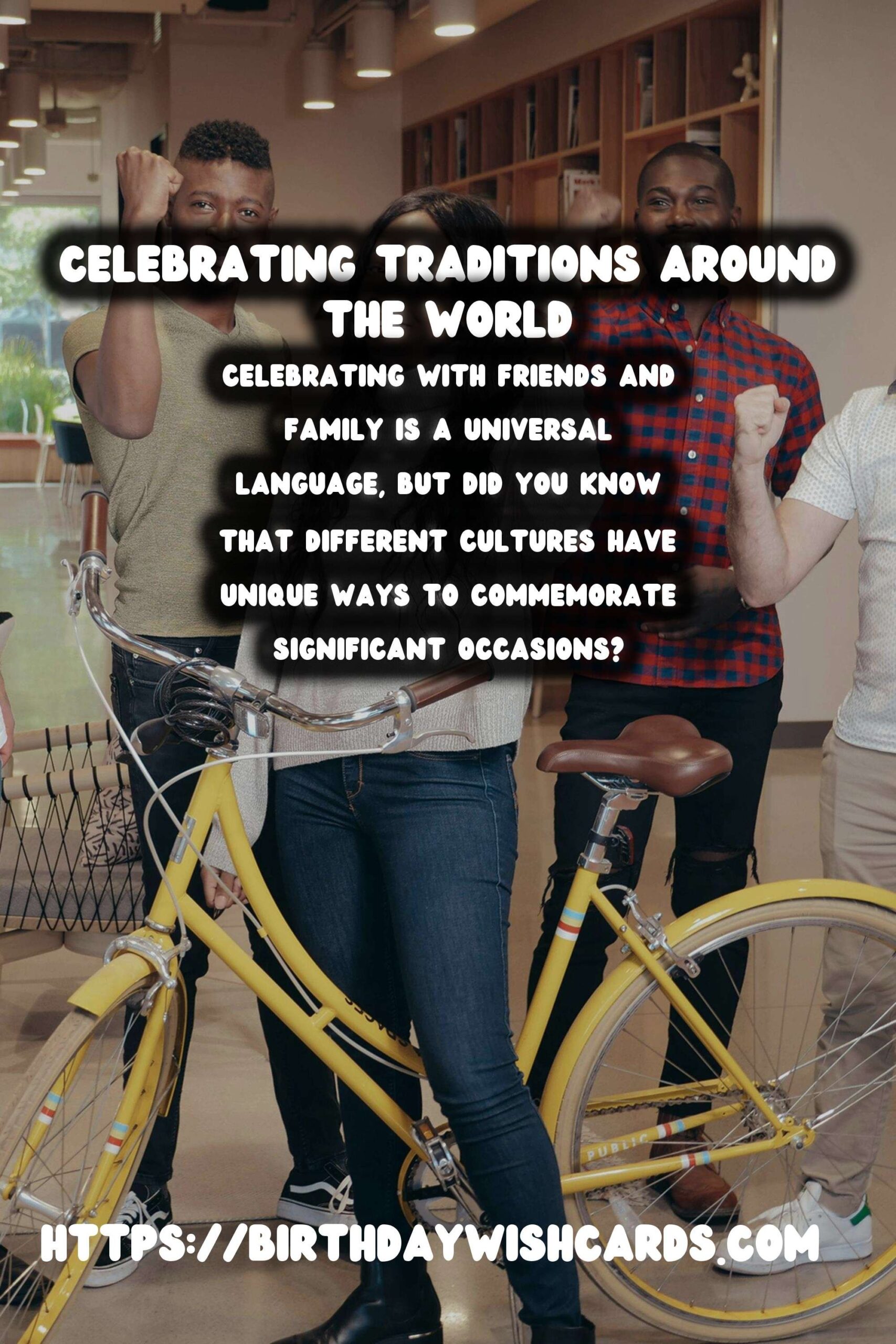

#CelebrationEtiquette #GlobalCulture #CulturalTraditions





